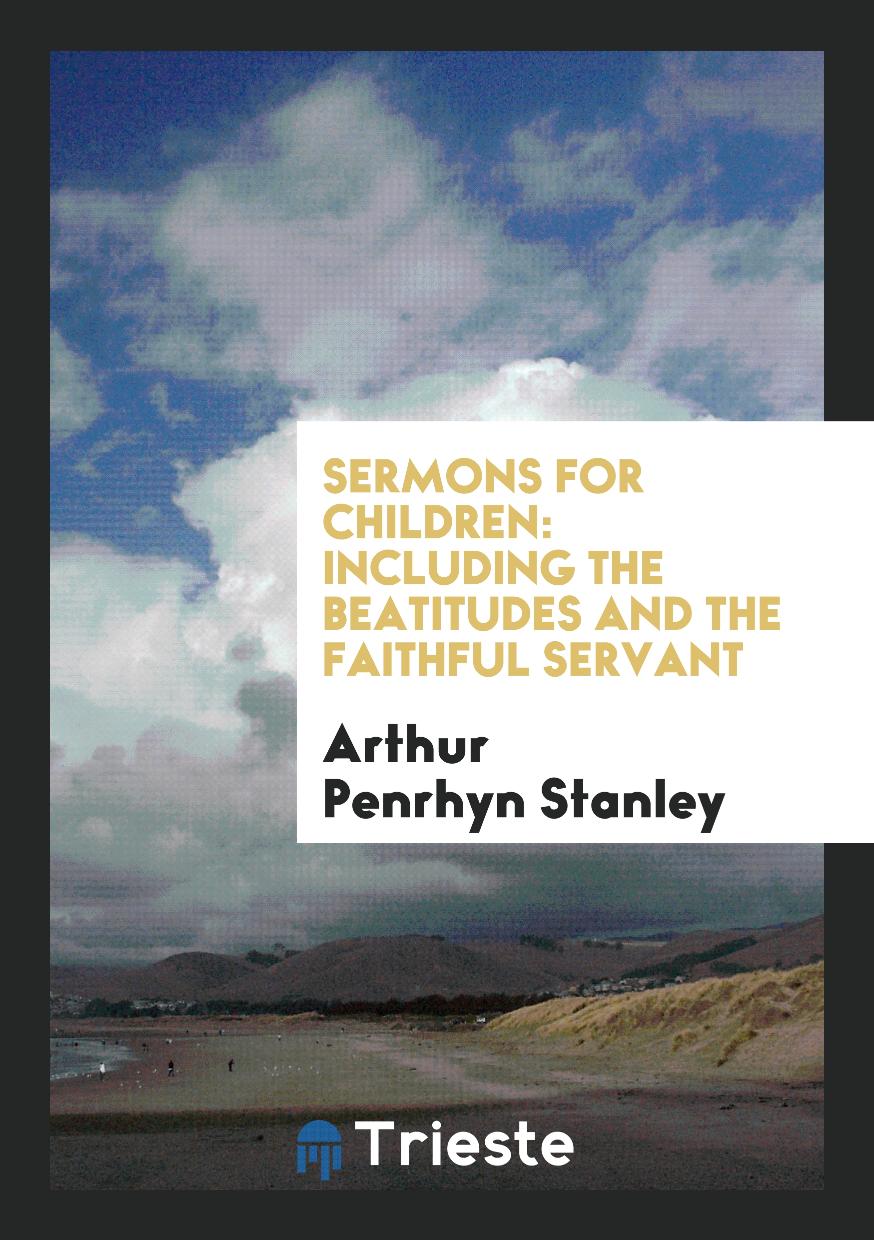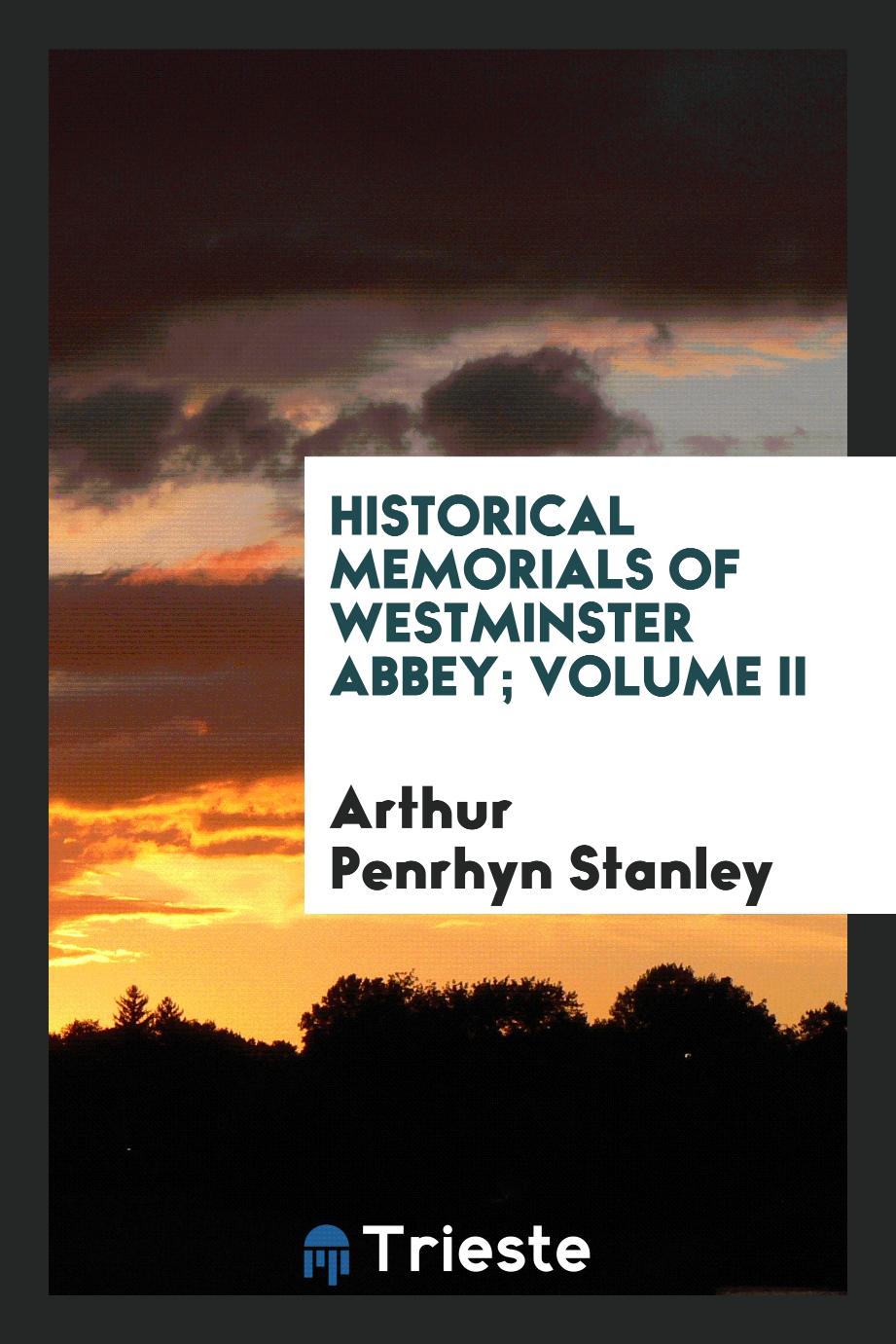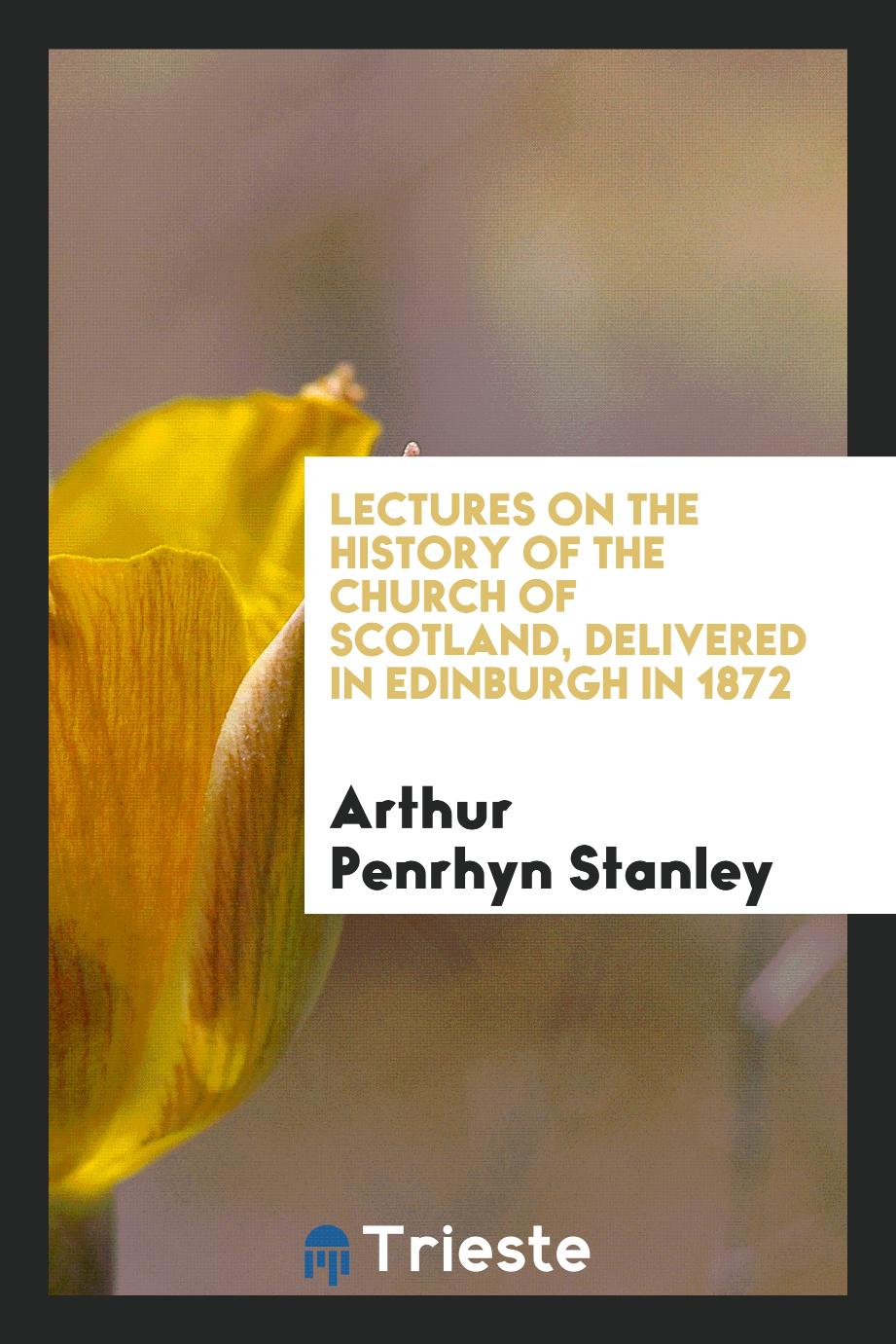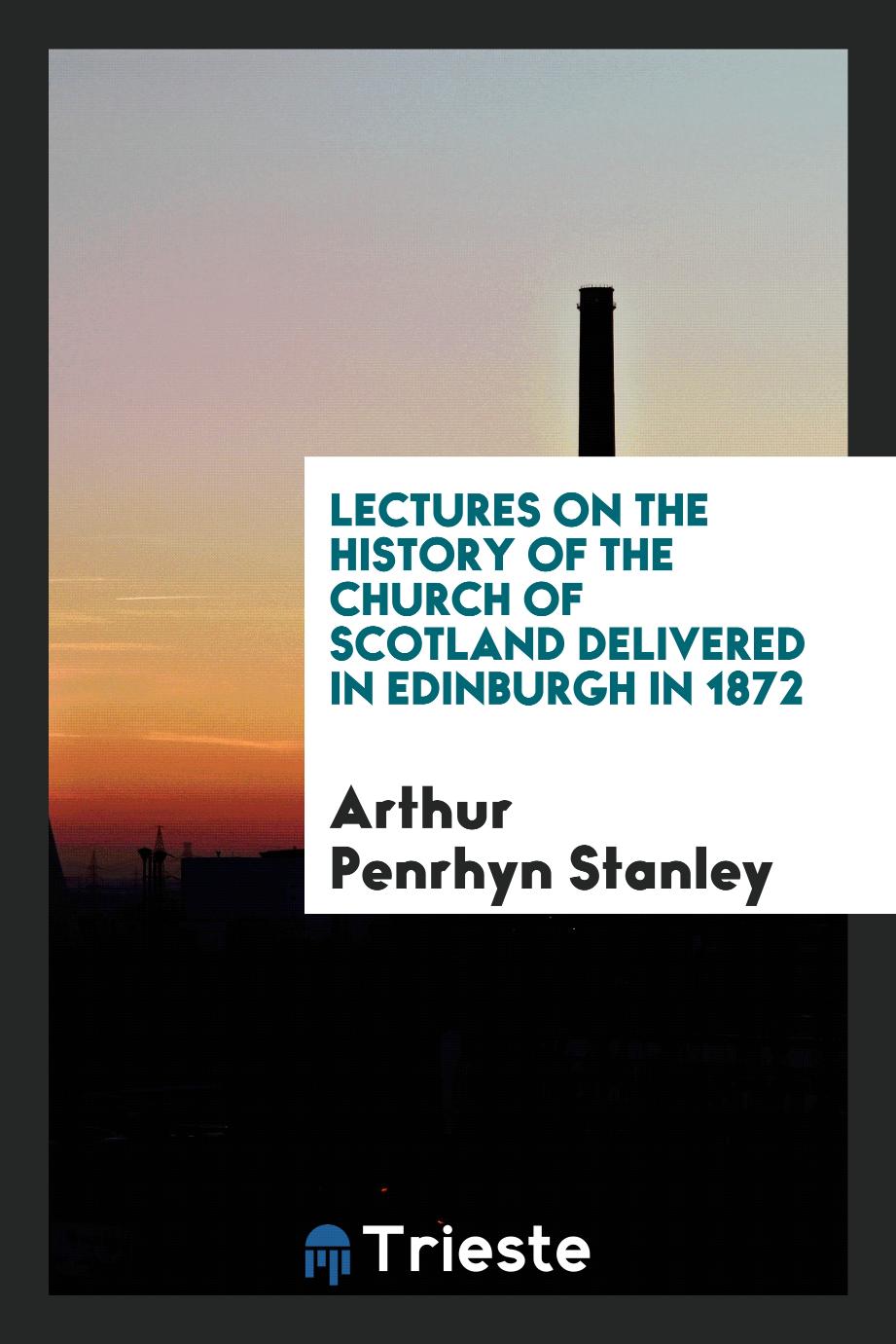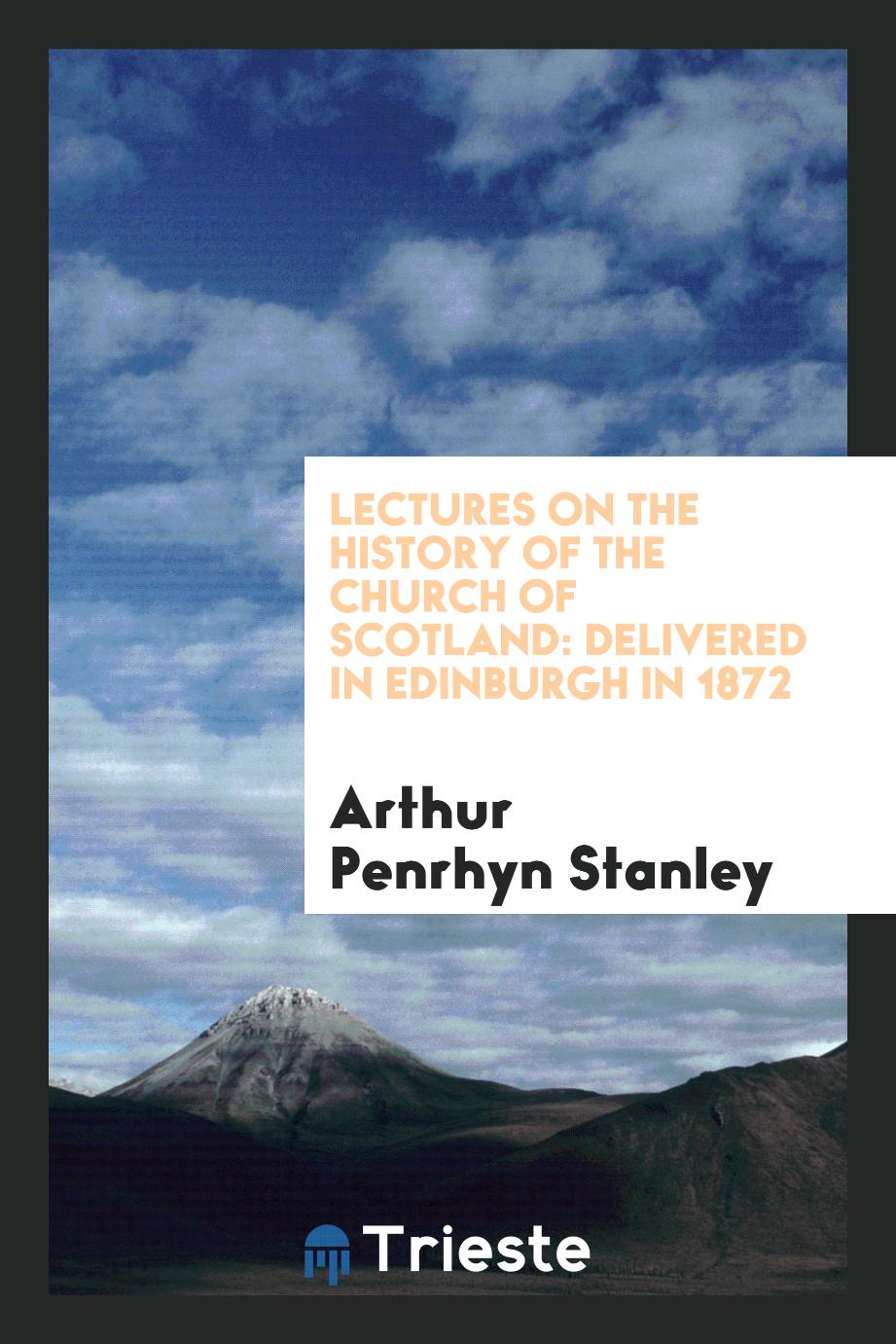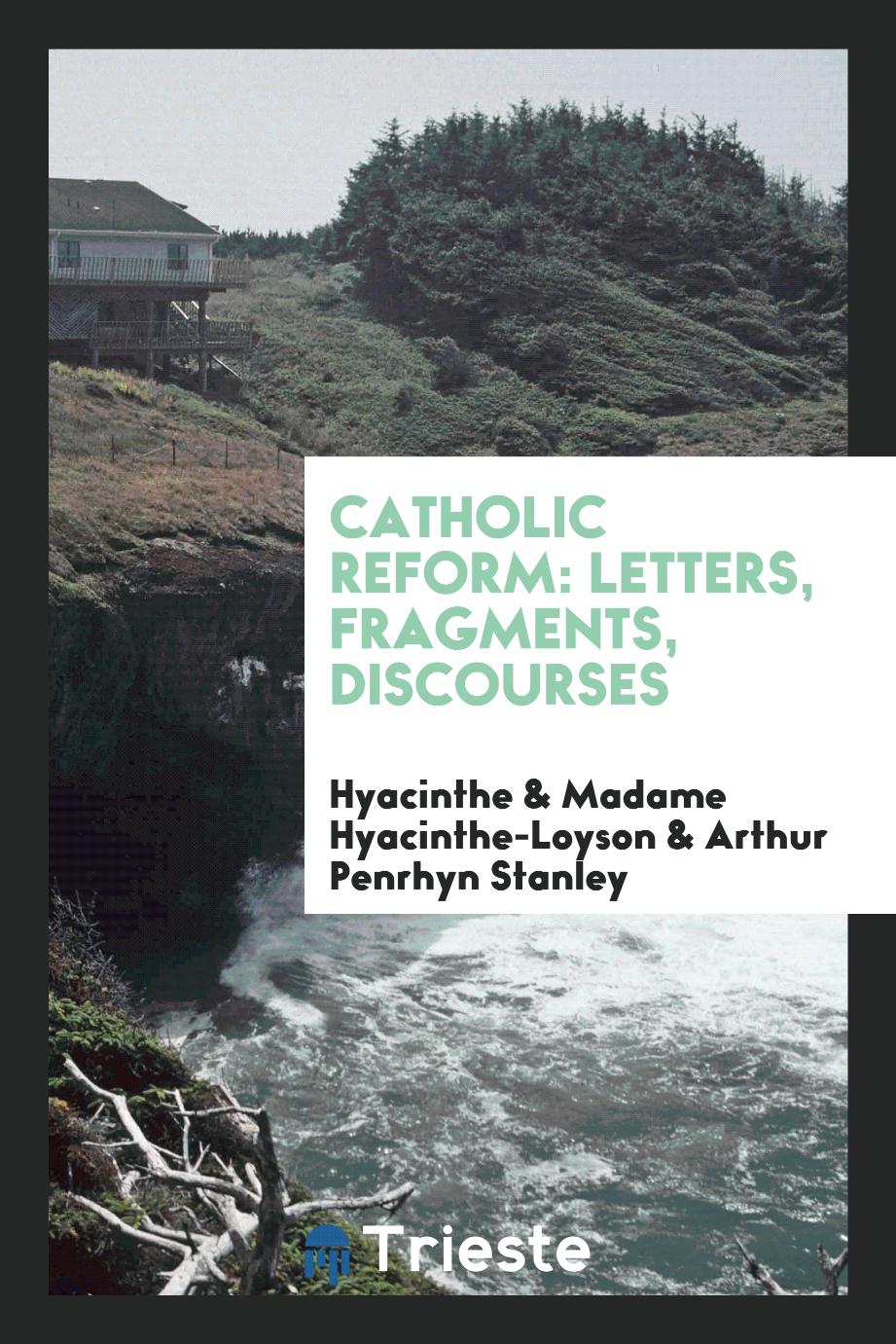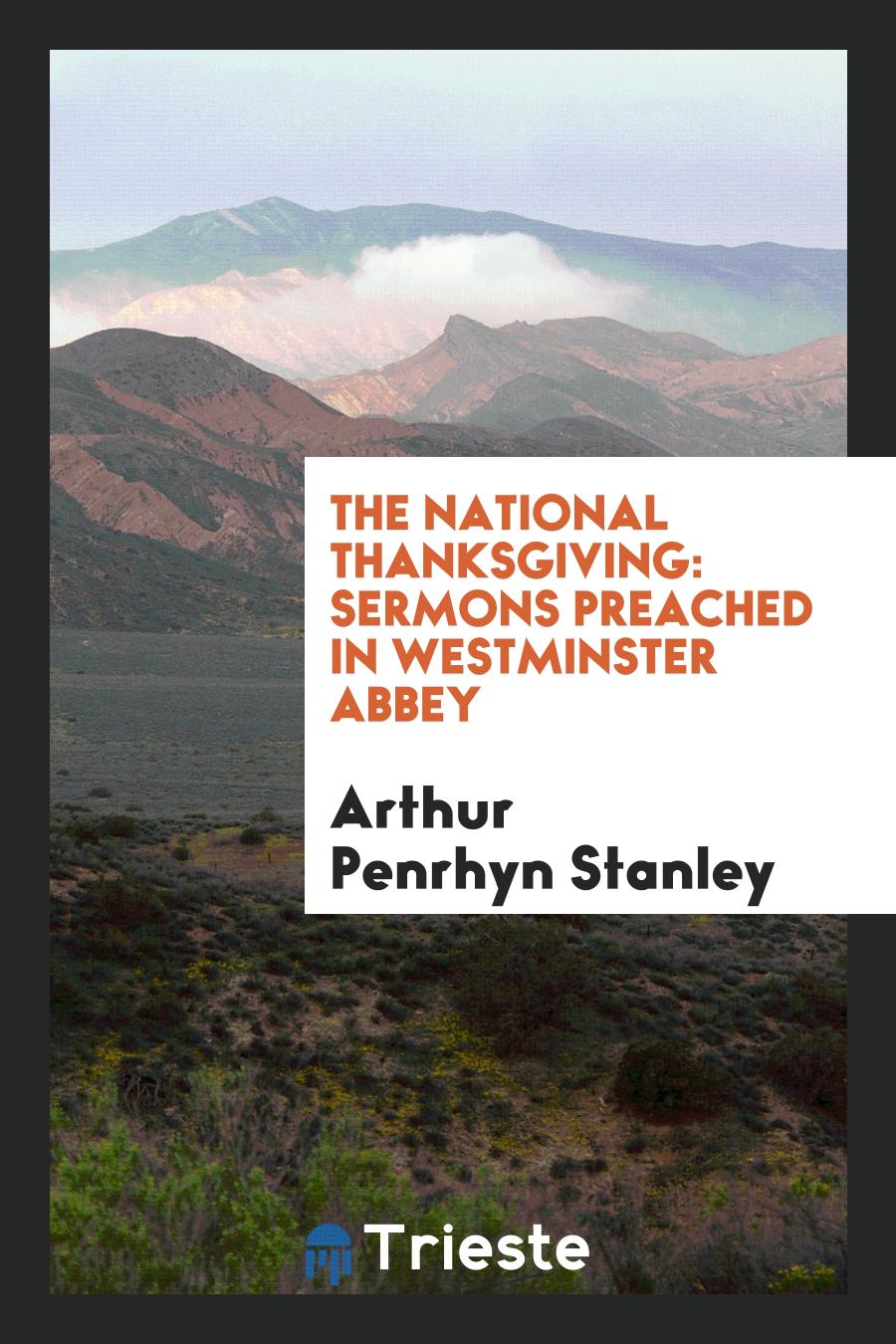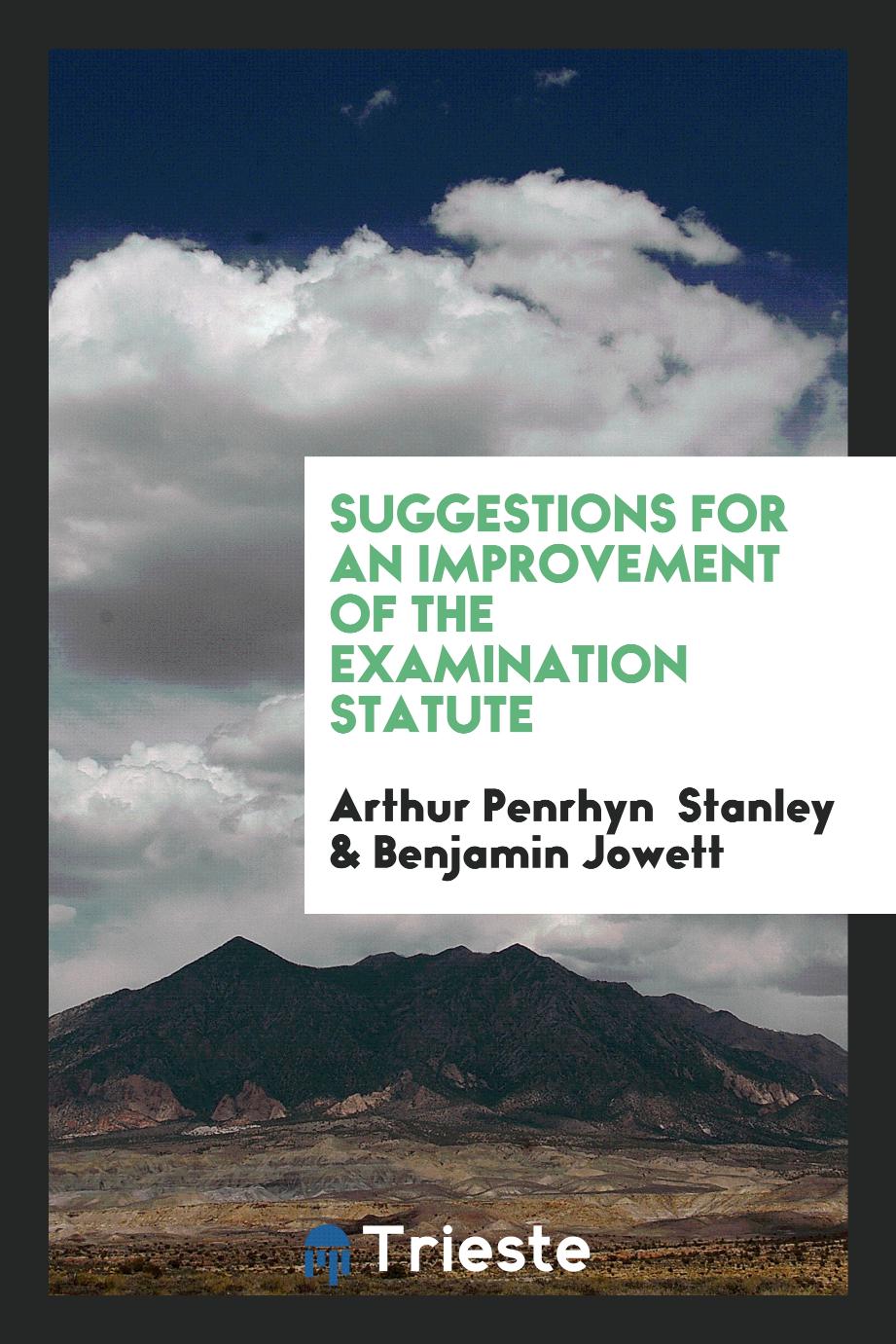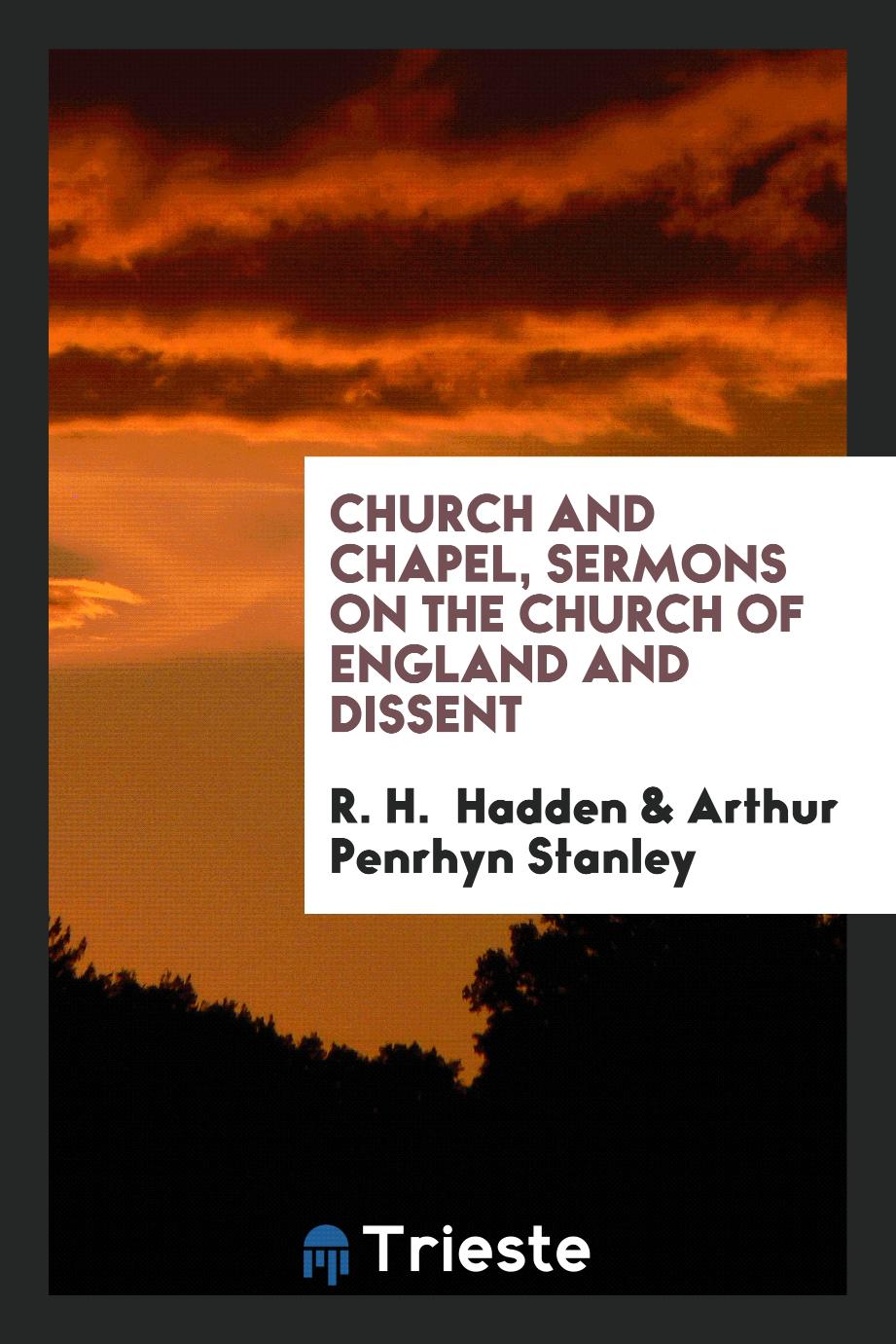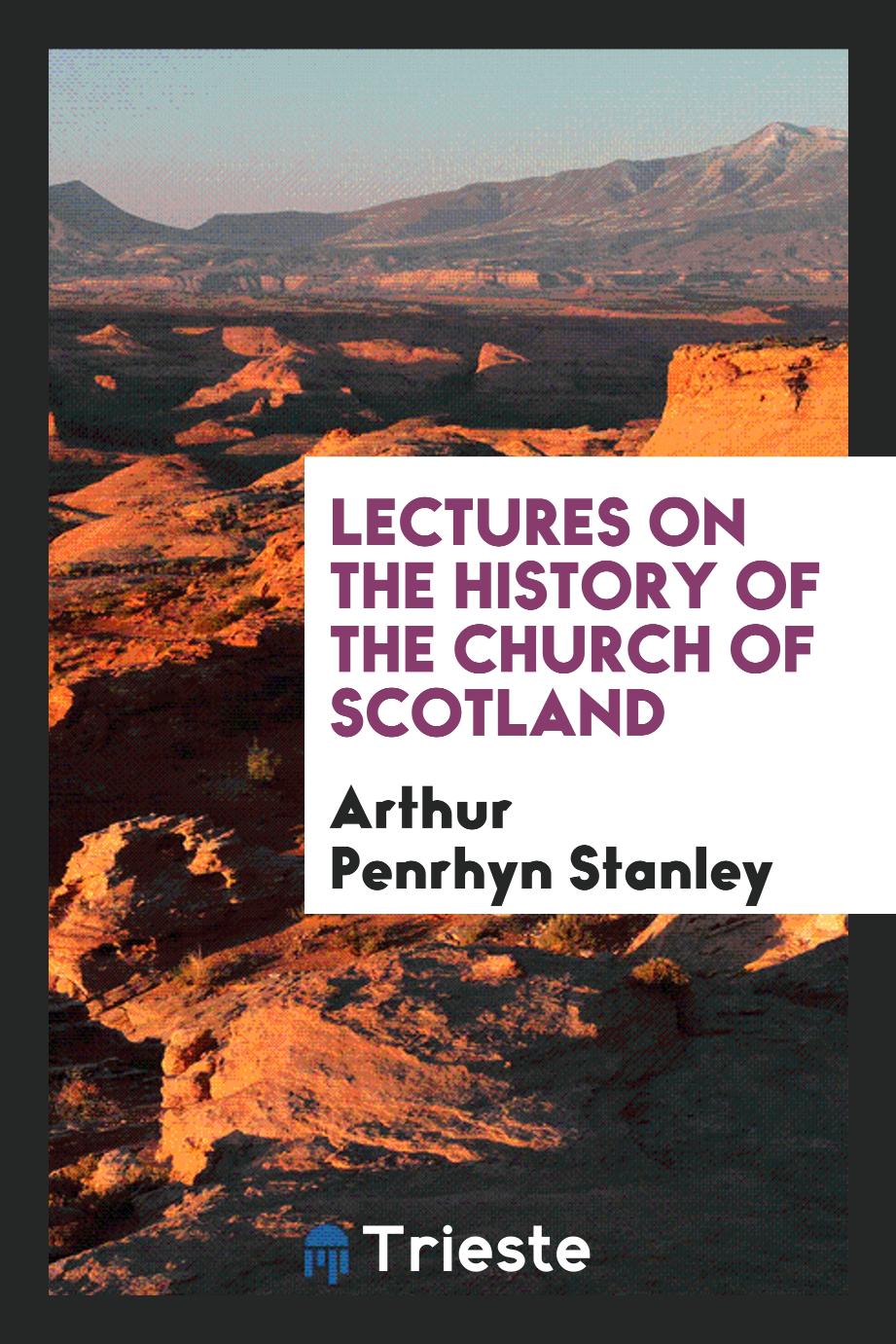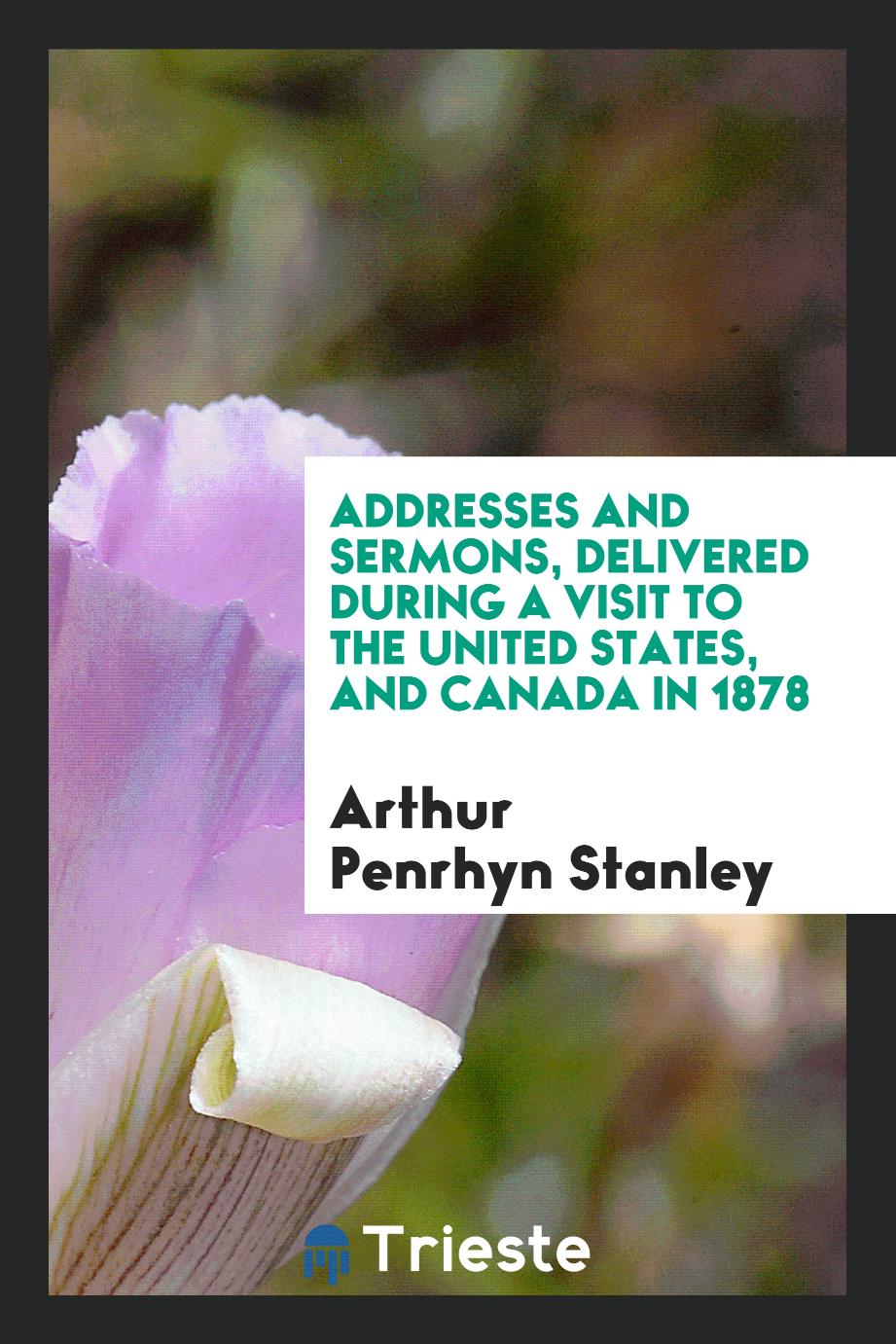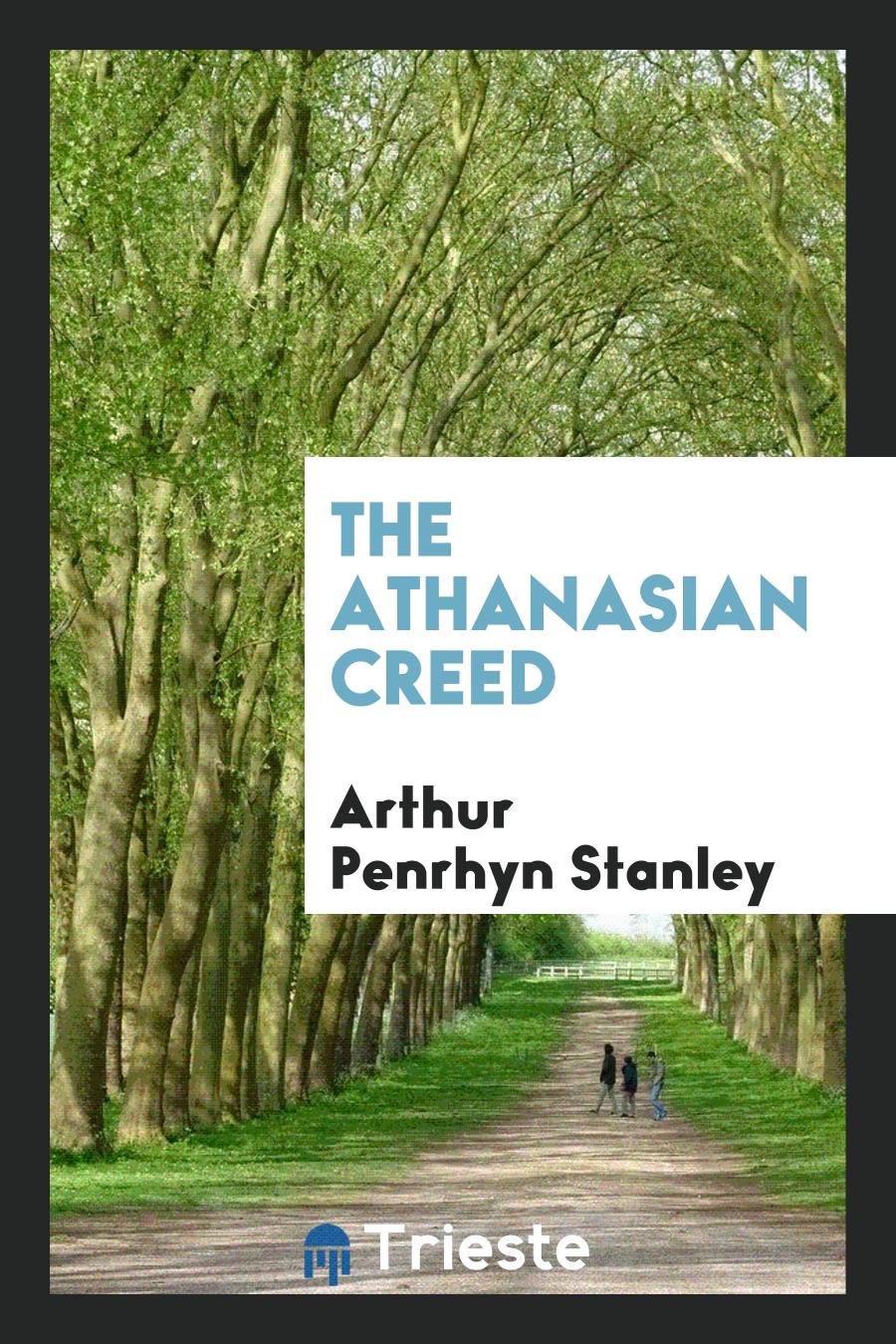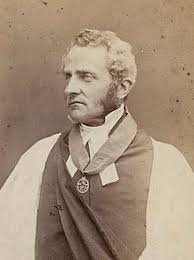
Arthur Penrhyn Stanley
Arthur Penrhyn Stanley, (13 December 1815 - 18 July 1881), known as Dean Stanley, was an English churchman and academic. He was Dean of Westminster from 1864 to 1881. His position was that of a Broad Churchman and he was the author of a number of works on Church History. Stanley was born in Alderley Edge in Cheshire, where his father Edward Stanley, later Bishop of Norwich, was then rector. A brother was Owen Stanley and his sister Mary Stanley. The middle-name 'Penrhyn' suggests Welsh lineage. He was educated at Rugby School under Thomas Arnold, and in 1834 went up to Balliol College, Oxford. He is generally considered to be the source for the character of George Arthur in Thomas Hughes's well-known book Tom Brown's Schooldays which is based on Rugby. After winning the Ireland scholarship and Newdigate prize for an English poem (The Gypsies), he was in 1839 elected a Fellow of University College, and in the same year took holy orders. In 1840 he travelled in Greece and Italy, and on his return settled at Oxford, where for ten years he was tutor of his college and an influential element in university life. His relationship with his pupils was close and affectionate, and the charm of his character won him friends on all sides. His literary reputation was early established by his Life of Arnold, published in 1844. In 1845 he was appointed select preacher, and published in 1847 a volume of Sermons and Essays on the Apostolic Age, which not only laid the foundation of his fame as a preacher, but also marked his future position as a theologian. In university politics, which at that time wore mainly the form of theological controversy, he was a strong advocate of comprehension and toleration. As an undergraduate he had sympathised with Arnold in resenting the agitation led by the High Church Party in 1836 against the appointment of R. D. Hampden to the Regius professorship of divinity. During the long controversy which followed the publication in 1841 of Tract 90 and which ended in the withdrawal of John Henry Newman from the Church of England, he used all his influence to protect from formal condemnation the leaders and tenets of the "Tractarian" party.
